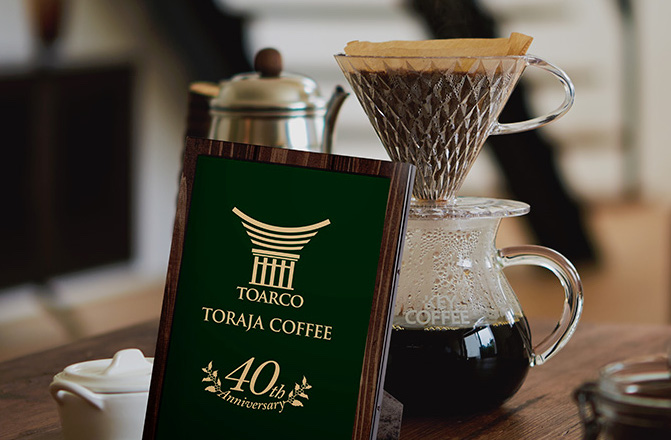
The experimental processing method is being applied to Key Coffee’s Toarco Toraja line, which comes from Key’s own farm in South Sulawesi, Indonesia. Key Coffee Facebook photo.
In the endless pursuit of quality and differentiation within the specialty coffee realm, perhaps no other facet has made gains so rapidly and with such practical significance in recent years as post-harvest coffee processing.
On that front, Japanese coffee roasting giant Key Coffee is experimenting with near-freezing whole, ripe coffee cherries and cold-storing them to further, or at least differently, develop sucrose, organic acids and free amino acids, according to a report from Nikkei Asian Review.
Key Coffee has been a leader in the Japanese coffee market for decades, primarily offering traditional instant (soluble) products, RTD coffee drinks and non-specialty-grade coffees. Yet the company also maintains high-end lines, particularly its Toarco Toraja brand, which sources coffees from a Key-owned-and-operated coffee estate in the Toraja region of Indonesia, in South Sulawesi.
According to Nikkei, the company is cold-shipping harvested coffee in cherry, although it is also developing a system to complete the experimental processing method at the farm. The company shared some interesting results with the news source:
For example, the amount of sucrose contained in raw beans rose from 6.35% when processed by conventional methods to 7.35% with the new technology. That might not sound like much, but when roasted, the beans are much more fragrant, according to the company.
Click here for some of our most recent stories on post-harvest processing.
Nick Brown
Nick Brown is the editor of Daily Coffee News by Roast Magazine.
Comment
2 Comments
Comments are closed.






What is “near freezing” – freezing point of water or freezing point of the fruit? How long are the beans near freezing to get the flavor change?
I imagine it’s the near-freezing point of water… one of the reason freezing organic material is often a bad idea (including why exposure to cold is so bad for humans) is because water molecules expand when they freeze, risking damage to the organic cell structure they’re contained in. So keeping the moisture in the cherry “near freezing,” as opposed to fully frozen, should go a long way in preserving the integrity of the cherry.